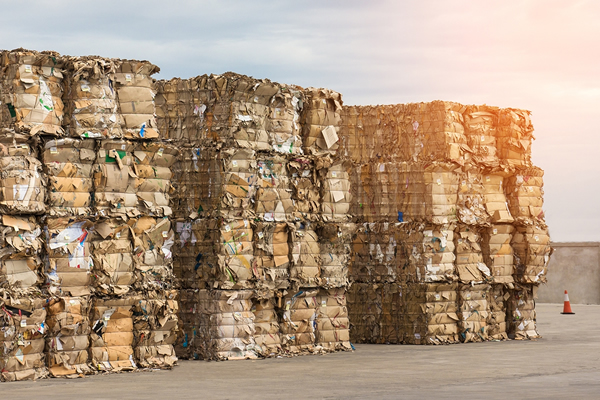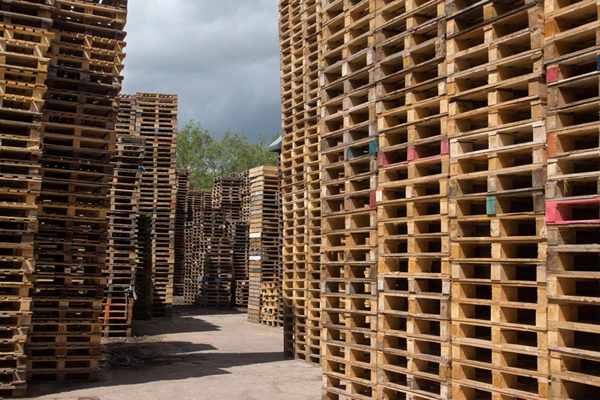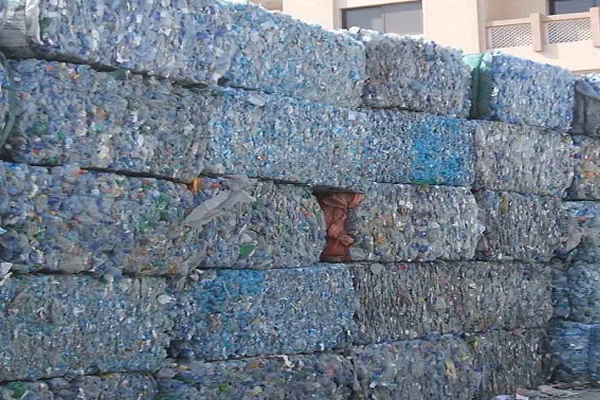
Tanrıkulu Group of Companies carries out recycling, collecting and separation activities in 4 facilities: Sultangazi, Kocaeli Izmit, Gebze and Köseköy. In these facilities, the collecting and separation processes are carried out for the recycling of Paper, Plastic, Metal and pallet materials.
What are the Contribution of Recycling to Economy and Environment?
Recycle; It is the process of re-processing most of the materials that we see as garbage into new products. It contributes to economy and environment.
Recycling is the recycling of waste materials to production and economy. Thus, it directly contributes to economy and indirectly to the environment. The cost and difficulty of preparing a material from scratch with a raw material can be reduced by recycling. Recycling is economically viable and requires certain conditions to be environmentally efficient. These; there must be a sufficient amount of recyclable materials, a system to remove these materials from waste, a business capable of reprocessing recyclable materials, and a potential demand for recycled materials.
History
History of recycling dates back to the 400s B.C. In the history of mankind, due to lack of resources and lack of scientific and technical applications, many tools were reused or repaired or converted to another instrument. The lack of new materials made it compulsory.
The need for recycling arose recently due to wars. The wars caused a shortage of raw materials and resources. Particularly the great states that participated in the Second World War started recycling campaigns in order to meet the need for resources during the war. The public was encouraged to collect fiber and metal materials. The most important example of these campaigns was seen in the United States. Recycling campaigns during the war continued in post-war in the countries with limited natural resources. Developed countries, who understand the importance of recycling, have made these practices a policy. Recycling became more important as global environmental problems increased.
Some important dates for recycling are as follows;
- The paper was first recycled in Japan in 1031. In some shops, materials made of waste paper, called compressed paper, were sold.
- In England in the 19th century, there were people who collected wood and coal ashes for the production of bricks.
- Between 1813 and 1914, textile materials were produced in England by combining pure wool with recycled fibers.
- In the 19th century, railways were made of scrap iron. During the same period, liquor bottles were recycled on a returnable basis in England and Ireland.
- Bottle recycling system was established in Sweden in 1884.
- Scrap iron and metal wastes gained importance as the steel and automobile industry started to develop in the early 20th century. During this period, scrap products such as pots, pans and various machines were collected from the houses.
- In 1982, aluminum beverage cans recycling systems were developed.
- The first electronic waste recycling program was implemented in Switzerland in the 1990s.
- In the 2000s, a significant increase was seen in electronic device waste. Recycling rules were set on this, especially in developed countries.
Definition of Recycling
General definition of recycling; recycling of waste materials to the economy as raw material. It is the inclusion of recyclable wastes in the process of reproduction in various ways. The conversion of waste into new objects and materials. Another definition is the recycling of wastes which can be recycled to a secondary raw material by various physical and chemical processes and included in the production process. The materials to be recycled are collected in one center, separated according to their types, cleaned and re-processed as a new raw material.
Contribution to Economy
Recycling of waste has significant contributions to the economy. First of all, the need for raw materials is decreasing. The conversion of a used product into a raw material saves energy. Recycling of a product from waste to raw material results in energy savings of 30 to 50 percent compared to the production of raw materials. The amount of energy saved through recycling, which is a component of the waste hierarchy in the form of mitigation, reuse and “recycling”, depends on the material recycled and the type of energy used.
Some of the contributions of recycling to the economy are as follows;
- Prevents waste of useful waste.
- Problems such as transportation and storage of waste and garbage are prevented.
- Reduces consumption of fresh raw materials.
- Reduces energy usage.
- Enables waste material to serve as a new product.
- Provides economic advantages by eliminating public waste in large populated areas.
- Creates new jobs and employment opportunities.
- 90% energy savings are achieved by recycling aluminum cans and 60% by recycling paper.
- Reduces the amount of imports by reducing the need for new raw materials and contributes to the national economy.
Contributions to Environment
Recycling makes a significant contribution to the environment and ecological balance. In parallel with the increasing population of the world, increasing raw material needs are prevented or minimized from disturbing the natural balance. Thus, environmental damage and environmental pollution are prevented to a minimum.
Some of the contributions of recycling to the environment are;
- Helps protect natural resources such as trees, water resources and minerals.
- Prevents air and environment pollution by reducing the need for new raw material collection.
- Helps reduce greenhouse gas emissions.
- Compost products or fertilizers produced from household wastes improve the soil and enable the use of nutrients by plants.
- Composted biological wastes form a rich organic source.
Recyclable Materials
It is not possible to include all kinds of products in recycling processes. For this, the quality of the materials used in the products is important. Almost all parts of a car can be recycled. The same is true for electronic devices. However, not every waste or garbage can be recycled. For example; materials such as diapers, plastic bags, mirrors, bulbs, greaseproof paper and motor oil bottles cannot be recycled.
Some of the materials that can be recycled can be listed as follows; iron, steel, aluminum, all kinds of metal, paper and derivatives, glass, all kinds of plastics, electronic and electrical materials, electronic consumables, batteries, accumulators, concrete, textile products, all kinds of wood, organic waste (such as vegetable oils), motor oils, solvent-based wastes, tires, foods, rubber, garden waste (herbage, grass, fertilizer, trees, etc.)
Recovery, which is a form of recycling, is the stage of separation of usable liquids or metals in complex materials. For example, the separation of gold circuits in thousands of parts in an automobile or the removal of mercury from thermometers is a rescue practice.
Do you know these?
- With the conversion of 1 ton of waste paper prevents cutting down 17 trees; 70 square meters of area is prevented from being destroyed; 32 thousand liters of water is saved.
- Specifically, recycling of recycled paper can reduce air pollution by 75-95 percent, water pollution by 35 percent, and water use by 45 percent.
- European Union countries have a 50 percent share in the recycling market. Accordingly, more than 60 thousand companies engaged in recycling applications employ 500 thousand people. The turnover of these companies is around 24 billion Euros…
- In 2015, 14 thousand people were employed in recycling practices in the US and contributed to the economy by 6.7 billion dollars.
- There are over 50 thousand recycling facilities in the USA. Approximately 1 million people are employed here.
- The price of 1 ton mixed recycled materials in the US is 100$.
- The amount of electronic waste worldwide is around 20 to 50 million tons per year.
- Recycling of one million laptops saves energy enough to meet the electricity needs of 3,500 homes per year.
- Recycling one ton of glass waste saves 100 liters of fuel.
- Glass bottles thrown into the nature disappear in 4 thousand years, plastics in thousand years, chewing gum in 5 years.
- Recycling is carried out in accordance with the standards set by the international standard organization ISO.



